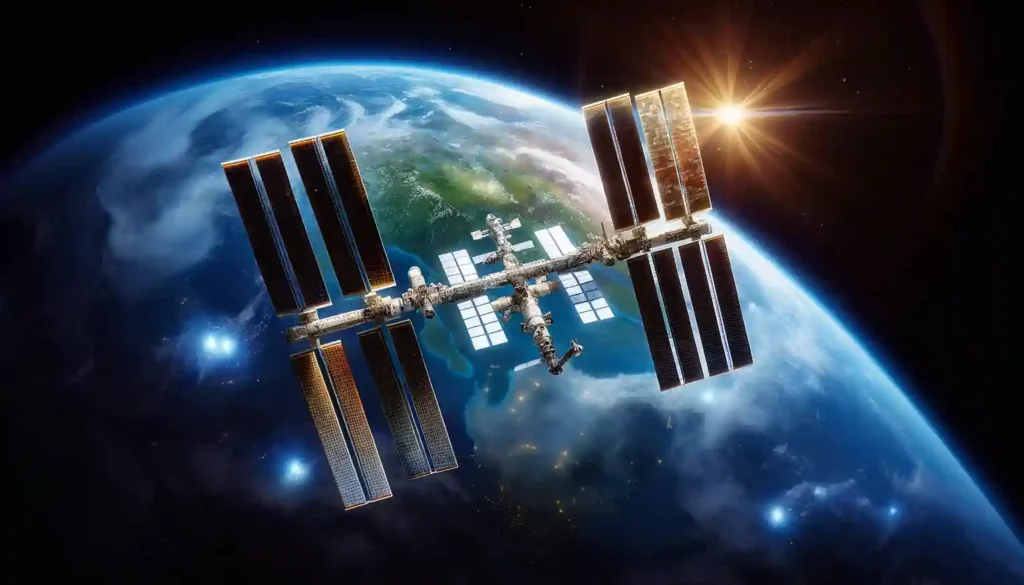Hi, fellow space-addicts! Have any of you wished to know how it feels to have spent over three years in space? What if we said you could have spent a whopping total of 1,111 days in space- a record that would par excellently shatter those in the galaxy of star-wars countries that Earth can’t access? That is what a brave Russian cosmonaut has just done, killing existing records on human missions to outer space.
Now, upon his return to the planet Earth, it is only him and us dumbfounded, as we wish to thank him for his concrete strength, devotion to the job, and achievements of science that his trip allowed. But this global event has brought along such heavy meanings about the future of space exploration.
Now, let’s dive into the story and find out!
Journey of the Cosmonaut
The cosmonaut, whose name is becoming well known in space mission circles, entered into orbit on what could very well turn out to be an important assignment. His travel began as an ordinary space flight, only to then be thwarted by the circumstances and demands of further explorations, such that he had to be confined in the heavens for a record 1,111 days. This is over three years, quite an outrageous duration for humankind as no single person has ever been away from the Earth for such a long time.
His mission started from the launching of the Soyuz rocket by Russia and was supposed to complete various experiments on board the International Space Station. His involvement was very important in bringing in new research strategies into how effects of long-time flight would be on a human organism, when such institutions like NASA and Roscosmos plan on missions to Mars, which have very long durations inside spacecraft.
The importance of 1,111 Days in Space

To put this achievement in context, one needs to understand that most long-term missions aboard the International Space Station typically last less than six months or even a year. While such missions are quite difficult for astronauts, they tend to face very severe physical and psychological strain while they are in the heavenly bodies. Compared to 1,111 days in outer space, the previous best record by this astronaut for staying in outer space is 437.7 days, set by his compatriot Russian cosmonaut Valeri Polyakov while aboard the Mir space station in 1994-95.
This new record starts an unprecedented mark in space exploration. Beyond that, however, in the endeavor to get the human race out of low-Earth orbit, every parameter regarding exploring space for the long term must be appropriately studied and dealt with. This cosmonaut also had a long stay in space, which also provides a measurement of the effects of space, microgravity, radiation, social isolation, and committing fatherhood for a long time.
Psychological & Physical Challenges for Cosmonaut
Among the several challenges of long duration space flights, perhaps the worst situation can be confronted by astronauts and cosmonauts, which is the physical effects of the prolonged microgravity; from muscles wasting, through bone demineralization, to changes in the cardiovascular system.
These changes are likely to be very important under such missions. The microgravity conditions that such astronauts and cosmonauts have to spend in space lead to changes in their cultural, linguistic, and geographical eco-systems, which do not affect their day-to-day activities; lose their jaws and even other bones and eventually start growing madly in the midst of copious efforts.
The psychological component is a really big part of spending extended periods in outer space. Inadequate social contact, confinement area, and the lack of features in the environment that the geography of Earth has will create some stresses, worries, and perhaps some depression. Even in the case of most Dragon Spacecraft, they would have a time limit as to how long one could stay in the craft; they would have discretized missions with a lot of time spent in the station itself, which is isolated from the world.
These issues should be tackled equally alongside the physical health problem in consideration of missions to Mars, where astronauts will spend long periods, not just inside a spacecraft but also several months on the Martian surface itself.
Adventurous Research in the ISS

However, endurance testing was not the only purpose of the Russian cosmonaut’s mission: most of all, it generated a significant amount of scientific activity. For almost all the days he lived on the International Space Station, he had been involved in numerous hundreds of experiments, with the purpose of the most number involving the effects of prolonged flights on human beings.
One of that area of research concerns the effects of and in particular zero-gravity on muscles and bones. The non-load conditions under which muscles and bones exist in weightlessness lead to muscle atrophy and decalcification. The cosmonaut underwent a battery of mobility tests and questionnaires along with some blood tests to determine how well his body adjusted to this environment over time.
Another vital research area was the radiation exposure that they got. When space travel takes place, it means going outside the atmospheric shielding of the Earth, which exposes the astronauts to cosmic radiation as risk factors for cancer among other diseases. Such findings will enrich space agencies, which will determine the level of protection to be kept healthy for the astronauts during such long missions especially to Mars.
Prolonged Space Voyage
The longest stay in space is not about the technical capability alone; much of it is about the human will to survive and strive. The occupant of the cosmological place denotes how existence could be reclaimed or even thrived under the most formidable conditions known to any human. Meanwhile, as practiced, with every stride in technological enhancements, exploration takes another leap forward.
It will set the stage for further manned spaceflights of very long duration in preparation for a journey to Mars. This is a deep space mission that could range between two to three years of duration. The cosmonaut’s 1,111-day-long travels demonstrate several degrees of relevance to understanding the human body’s and psyche’s factors impacted by long missions.
Avenues for Mars Exploration By Cosmonaut
Space agencies all over the world are making very firm efforts to study the feasibility of sending human beings to Mars. The flying hours of a completed mission by a cosmonaut are really interesting in this regard. A human-crewed mission to Mars entails months of traveling in space and thereafter an extended holiday on that blue dot, following which the astronauts have to return. Such a situation would imply that aspiring astronauts could be forced to stay nearly a thousand days away from Planet Earth, which is more than what any other cosmonaut managed.
This information basically informs scientists of what challenges they must deal with when thinking of future Mars expeditions. These challenges include how a crew could be prevented from suffering muscle atrophy or bone loss and how they could be shielded from radiation. It must also include the handling of the emotional aspects of such missions including how they’ll cope with such experiences like loneliness and confinement.
CONCLUSION
The return of the Russian cosmonaut to Earth after an unprecedented 1,111 days of travel in space will remain an indelible mark in the annals of space exploration. This mission stands testimony to human resilience and the increasing possibility of long-term missions into space.
The precious insights gained would definitely help shape the future of interplanetary travel and even prepare for the challenges awaiting us. As we await Mars and beyond, let us remember the amazing feat as testimony to all that lies ahead. The question now is: are we ready to push the boundaries even further and take the next giant leap into deep space exploration?
FAQ
How many days has a Russian space voyager spent on the interior of a spacecraft?
This unaffected cosmonaut wasted an astonishing time of one thousand one hundred and eleven days, which shows approximately more than three years. This is the longest any other human being apart from the cosmonaut has ever spent in space.
State the mission’s primary aim.
The main objective of this mission was to perform some scientific and research experimentation on the effects of prolonged space travel on the human body, which will inevitably be important for thanksgiving trips to Mars and other missions deep into space.
How is this record different from previous record space records?
The length of this accomplishment went beyond the earlier record of 437.7 days held by Russian cosmonaut Valeri Polyakov he’s a milestone in the new achievements for humanity in the area of space exploration.
What is it that the cosmonaut faced alongside other things about the odds against him staying for such long-extended periods?
He suffered much physical deprivation, including muscle wasting and loss of calcium in his bones due to living in a nearly weightless environment, as well as psychological stress from being confined indoors for such long periods in outer space.
What influence would the mission carry on possible future space explorations?
The information gained from this mission will be particularly important in the context of the assessment of effects of long-term spaceflights and will help plan missions to Mars and other deep space destinations for the future as safer and more effective.




